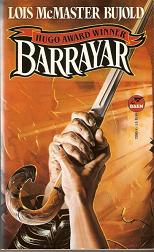I’m sure somebody else will have written about this in a much more clever way, but when has that ever stopped me before? There has been an uptick in stories about harassment, sexual, racist, or just plain hassling the weirdo. These are all three examples of relatively mundane harassment, of the kind that is experienced on a daily basis by thousands of people, but which is relatively invisible to anybody not directly involved as either victim or bully, not being obviously outrageous stories of injustice. Reading these stories and the comments that they attracted, I began to notice something.
It’s of course no secret that any such story of harassment will attract skeptical commenters, who for some reason or another want to deny or excuse the harassment. Few of those, certainly not in the more enlightened environment of e.g. Metafilter, will excuse or agree with the racism or sexism directly. Instead, there are four main techniques which skeptics use to discredit bullying victims: Minimise, Doubt, Excuse and Shift Blame.
Minimise: don’t deny the incident, but deny its importance and the need to talk about it. (Frex) What this does should be obvious: if an incident isn’t worth talking about, it can’t be used as evidence of sexism, racism, bullying etc.
Doubt: just straight up start questioning whether the incident really happened or whether there is another side to the story (frex). This can be done under the guise of keeping an open mind, not wanting to judge on hearsay and “innocent until proven guilty” and all that good stuff, but what it really does is denying the victim their experiences.
Excuse: the other side of the doubt coin, explaining that there are reasons why what the victim thought was harassment wasn’t actually, or wasn’t intended as such, or couldn’t be helped. There are several examples of it in the Livejournal thread about the woman who was hassled at Readercon, with some commenters speculating that the harasser might have Aspergers or ADD or something. What this does is to again doubt a victim’s experiences as well as remove the responsibility for the bullying from the bully.
Finally, shift blame: it wasn’t the bully’s fault that this happened, it must have been something the victim did or did not do which made them do it. This is on full display in the thread about Stephen Mann, where he’s described as provocative and not telling the whole truth (doubt again). You also see this a lot with any story involving cops killing or harassing innocent people, where it seems to be as much fear as hatred driving people to argue that there must be something the victim did to deserve their treatment.
There’s one other technique that helps with each of the four main techniques to delegitimise experiences of harassment: nitpicking, doubting every detail of the story the victim tells. This works well because few people are able to be one hundred percent right or precise when writing down their experiences…
These are all techniques that should be known to anybody who has spent some time on internet threads about bullying, or police brutality, or any other story where you have people wanting to deny the reality of it, but I thought it would be good to write it down for a change, to make it explicit.
